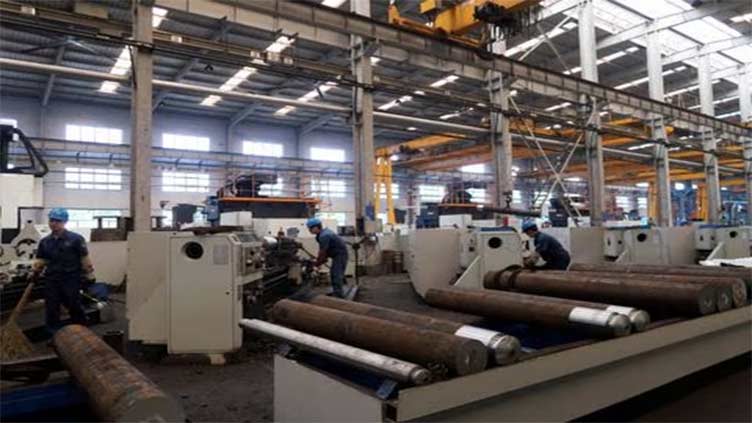Asia's factory activity weakens, China's rebound offers some hope

Business
China's private Caixin/S&P Global manufacturing purchasing managers' index (PMI) rose to 51 in Aug
TOKYO (Reuters) – Asia's factory activity weakened in August as manufacturers felt the pinch from rising input costs and slowing global demand, but an unexpected rebound in China offered some hope for the region's export-reliant economies, private surveys showed.
China's private Caixin/S&P Global manufacturing purchasing managers' index (PMI) rose to 51.0 in August from 49.2 in July, a survey showed on Friday, beating analysts' forecasts and exceeding the 50.0 threshold that separates growth from contraction.
The reading came a day after an official survey showed manufacturing activity contracted for a fifth straight month, offering a mixed picture on business conditions in the world's second-largest economy.
While the rebound in China's factory activity may be a sign official efforts to revive growth is starting to have some effect, factory activity in most of Asia remained stagnant in August.
Japan's factory activity shrank for a third straight month in August, while that for South Korea extended its longest-ever slump on wage pressures and soft exports, the surveys showed.
The data highlighted the challenge Asia's policymakers face in keeping inflation in check while cushioning the blow to their economies from sluggish global demand.
Asia has been among the few bright spots in the global economy, though persistent weakness in China cloud the outlook.
In revised forecasts issued in July, the International Monetary Fund projects emerging Asia's economic growth will accelerate to 5.3% this year from 4.5% in 2022. It expects China's economy to expand 5.2% this year after a 3.0% increase in 2022.
"August PMI data signalled that South Korea's manufacturing sector saw a sustained deterioration in operating conditions," said Trevor Balchin, Economics Director at S&P Global Market Intelligence.
"The current downturns in output and new work are the longest in the survey history, although much less severe than those registered during the pandemic and global financial crisis," he said on South Korea's factory activity.
Japan's final au Jibun Bank manufacturing PMI came in at 49.6 in August, unchanged from July and staying below the 50.0 threshold for a third straight month, as input costs rose, a private survey showed.
South Korea's PMI fell to 48.9 in August from 49.4 in July, marking the 14th straight month of contraction on weak export orders.
Factory activity also contracted in Taiwan, Malaysia and the Philippines last month, with Indonesia the outlier with a modest expansion, surveys showed.

